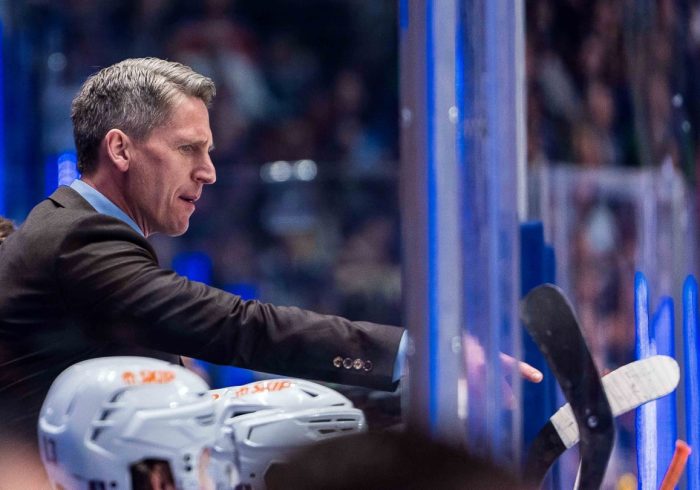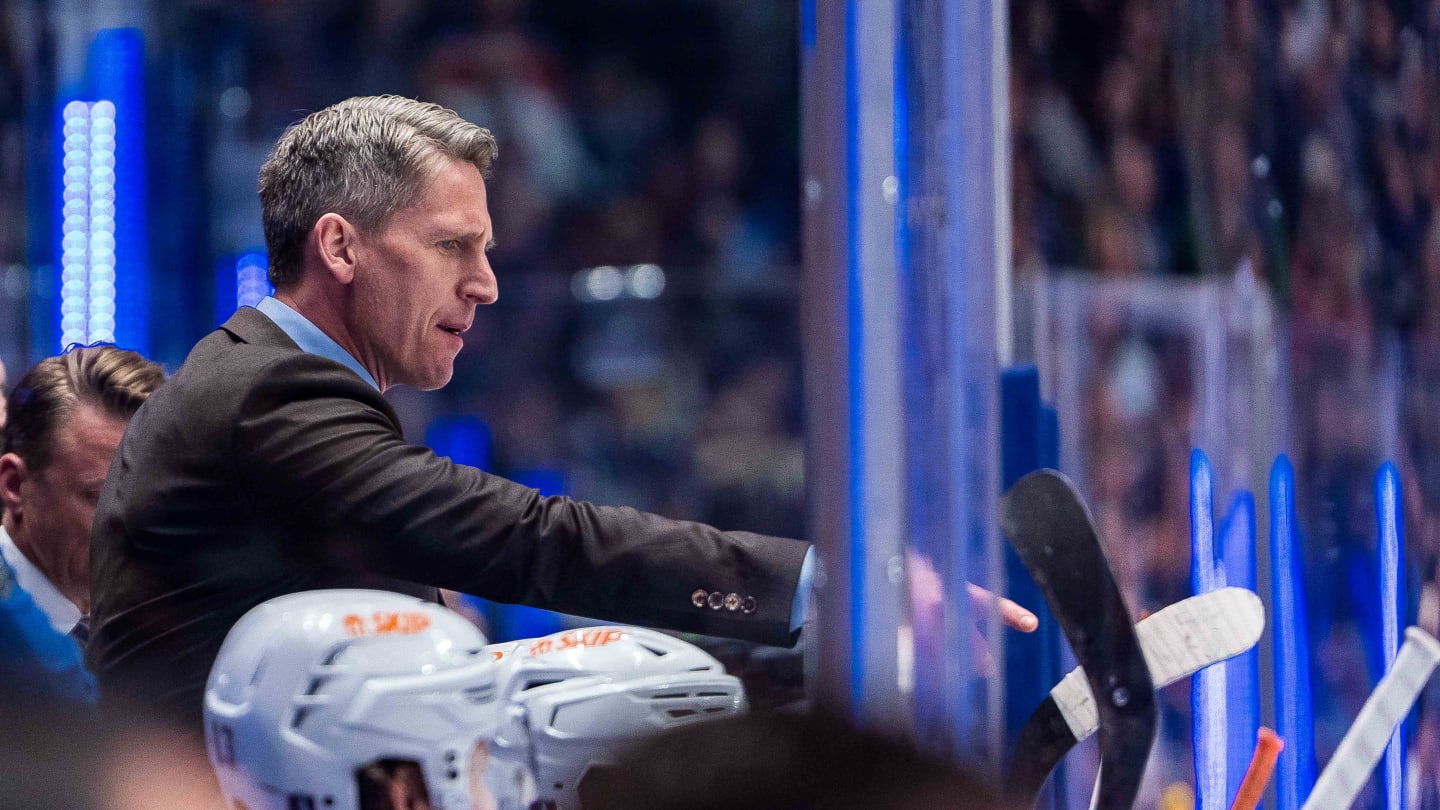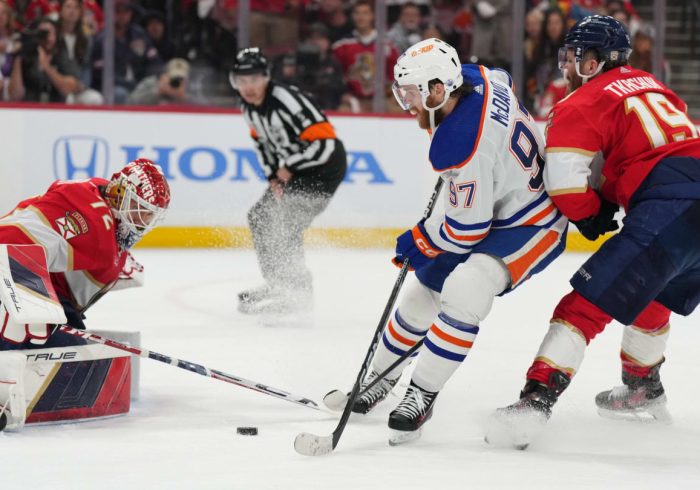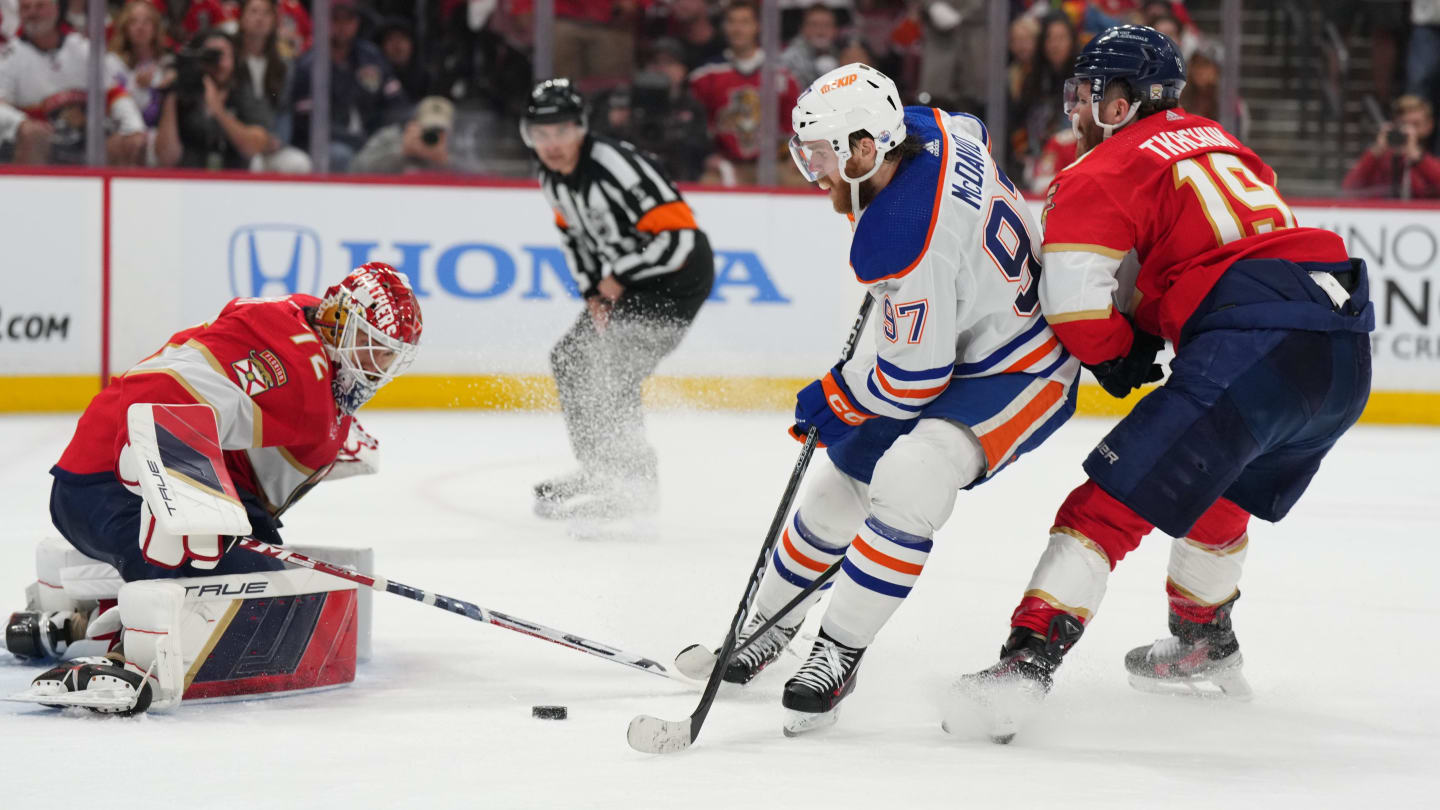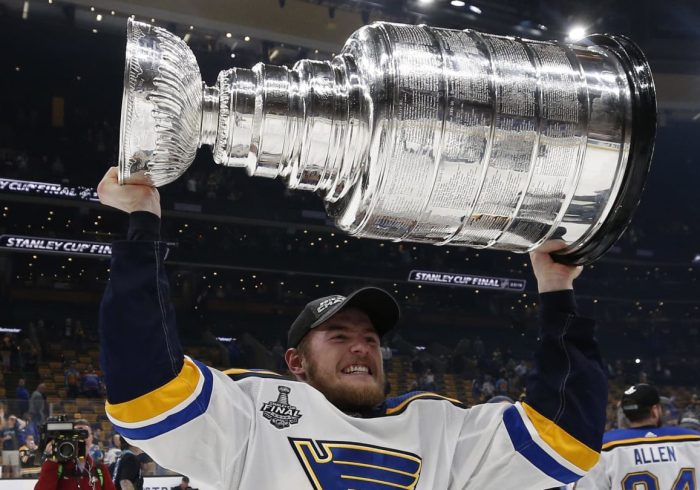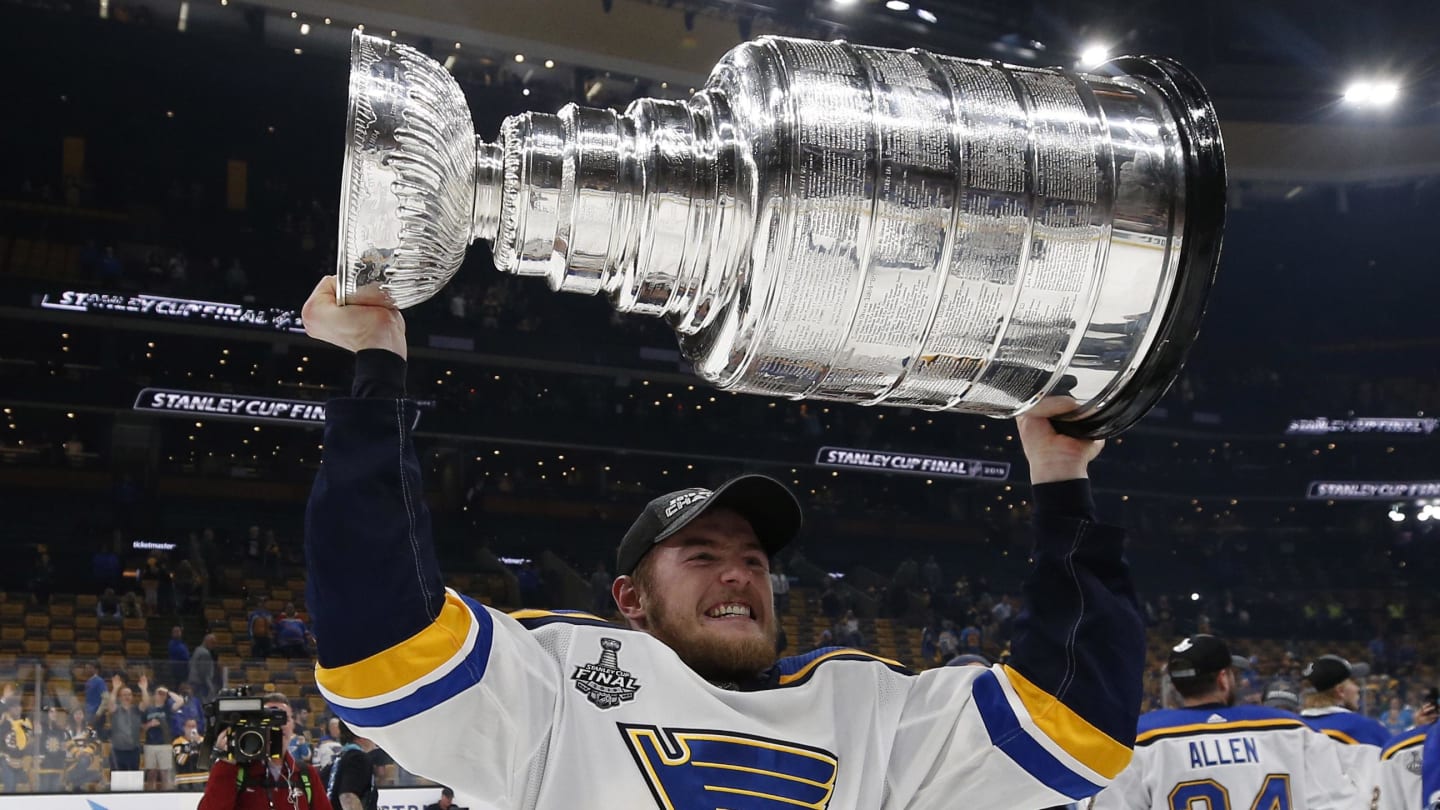Tampa Bay Lightning coach Jon Cooper apologized Wednesday for comments he made Monday after the Lightning’s playoff elimination that were widely condemned as misogynistic.
“I made an inappropriate analogy about goalies and skirts,” Cooper told reporters. “You know, it’s one of those moments if you could just reach back and grab the words back, I would have.”
Tampa Bay lost 6-1 to the Florida Panthers Monday in Game 5 of their first round series. After the contest, an irate Cooper questioned two goalie interference calls by suggesting “we might as well put skirts on (goalies) then, if that’s how it’s gonna be.”
Cooper said he had to explain himself to his twin daughters after his comments.
“I have girls that play sports,” Cooper said. “Quite frankly, it was wrong. I had to go explain myself to my girls… it’s pained me more than the actual series loss itself.”
In 12 years with the Lightning, Cooper has won two Stanley Cups and four Eastern Conference titles.

